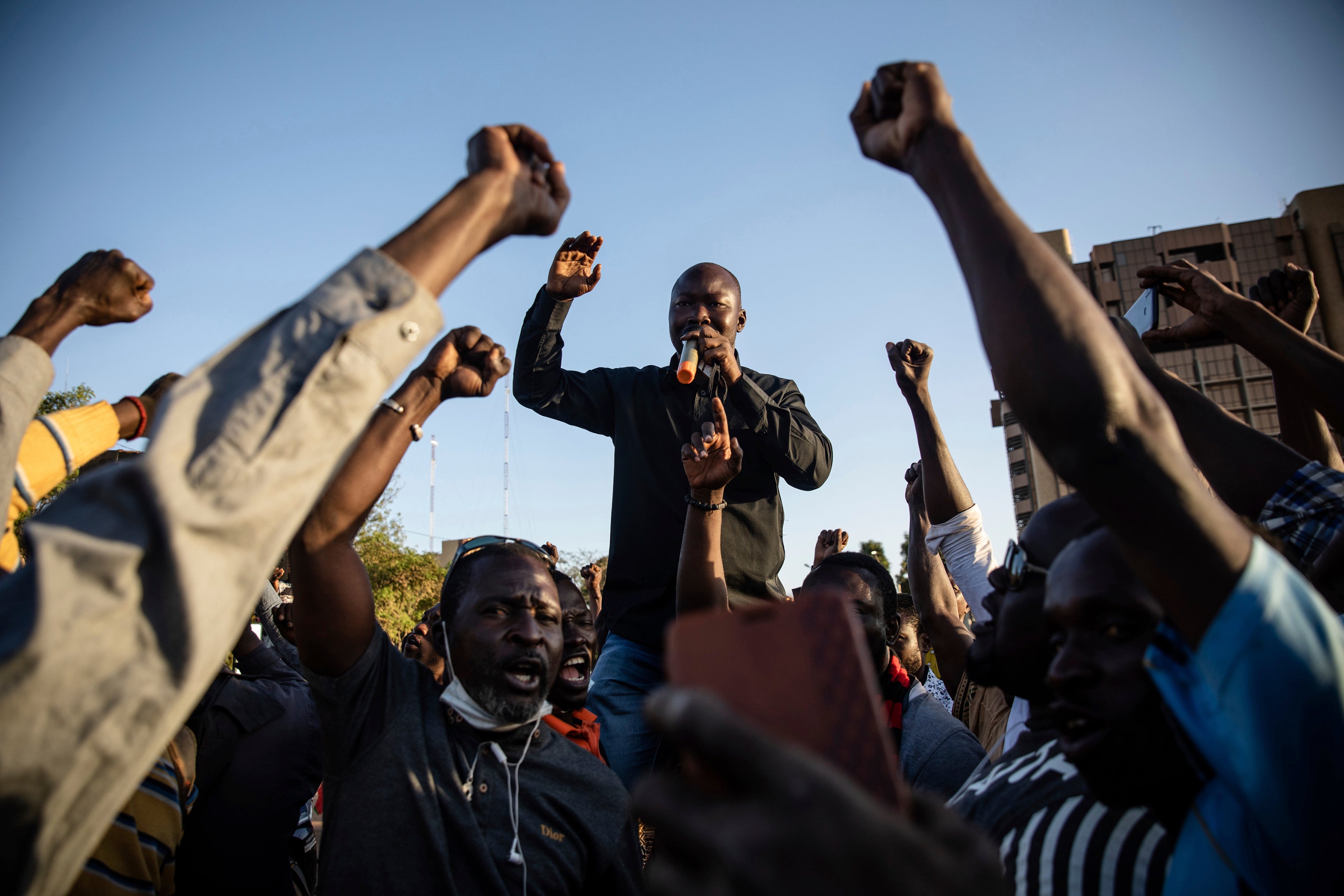Burkina Faso wakes to find new junta rulers, closed borders
People in Burkina Faso awoke to a new military-led junta Tuesday morning, after mutinous soldiers ousted democratically elected President Roch Marc Christian Kabore and seized control of the West African country

People in Burkina Faso awoke to a new military-led junta Tuesday, after mutinous soldiers ousted democratically elected President Roch Marc Christian Kabore and seized control of the country.
Days of gunfire and uncertainty in the capital, Ouagadougou ended Monday evening when more than a dozen soldiers on state media declared that the country is being run by their new organization, the Patriotic Movement for Safeguarding and Restoration.
“Today’s events mark a new era for Burkina Faso. They are an opportunity for all the people of Burkina Faso to heal their wounds, to rebuild their cohesion and to celebrate what has always made us who we are: integrity,” said Capt. Sisdore Kaber Ouedraogo.
Many residents of the capital appeared pleased by the coup and celebrations were planned for Tuesday, but regional African leaders and international bodies condemned the military takeover.
The junta closed the borders, imposed a curfew, suspended the constitution and dissolved the government and parliament and said it would return Burkina Faso to constitutional order, but did not specify when. The soldiers said the overthrown president is safe, but did not reveal where he is being held. A publicly circulated resignation letter signed by Kabore said that he was quitting his office in the best interest of the country.
The coup comes after months of growing frustration at the Kabore government’s inability to stem a jihadist insurgency that’s wracked the country, killing thousands and displacing 1.5 million people. However, it’s unclear what might change under the new junta, as the ill-equipped military has struggled to battle the jihadists linked to al-Qaida and the Islamic State group.
“A simple change in leadership is unlikely to turn the tide,” said Constantin Gouvy, a Burkina Faso researcher who works for the Netherlands-based Clingendael Institute. “What we do know though is that some of the mutineers’ demands include better material and reinforcements, better training and better handling of the wounded and families of fallen soldiers. Essentially, they are asking for a better hierarchy that listens to their concerns.”
While not much is known about the new leaders, they appear young and are said to be within the higher ranks of the lower level tier of officers. The new apparent leader, Lt. Col. Paul Henri Sandaogo Damiba, is a published author in his early 40s and was recently promoted by Kabore.
One mutinous soldier who insisted on anonymity for his security told The Associated Press that younger officers who had experienced war needed to run the country, rather than older ones who had never used their guns outside of military training, in a nation that had never previously seen fighting. He said the younger men might not have governance experience but they could learn. The junta is now meeting with religious and community leaders as well as the previous government to discuss a way forward, he said.
To some in Burkina Faso, the soldiers’ youth is one of the reasons they believe they’ll be able to succeed.
“If you look at those who have taken power they seem to be younger and we hope they will bring younger ideas, bring better ideas than we have seen up until now,” said Aliou Ouedraogo, a resident of Ouagadougou.
Meanwhile, the international community has condemned the takeover. The West African regional bloc known as ECOWAS, demanded that the soldiers return to their barracks and urged dialogue with the authorities to resolve the issues. United Nations Secretary-General Antonio Guterres called on coup leaders to put down their arms.
A western diplomat in Ouagadougou who was not authorized to speak on the matter said the military takeover would have serious implications for Burkina Faso's relationships with international partners and could negatively impact the country's security and development, including receiving international aid.
The U.S. State Department said it was deeply concerned by events in Burkina Faso, calling for restraint by all actors, adding that it would be carefully reviewing the events on the ground for any potential impact on assistance.
“We condemn these acts and call on those responsible to deescalate the situation, prevent harm to President Kabore and any other members of his government in detention, and return to civilian-led government and constitutional order,” said a statement from department spokesman Ned Price issued late Monday. “We acknowledge the tremendous stress on Burkinabe society and security forces posed by ISIS and JNIM but urge military officers to step back, return to their barracks, and address their concerns through dialogue.”
Bookmark popover
Removed from bookmarks